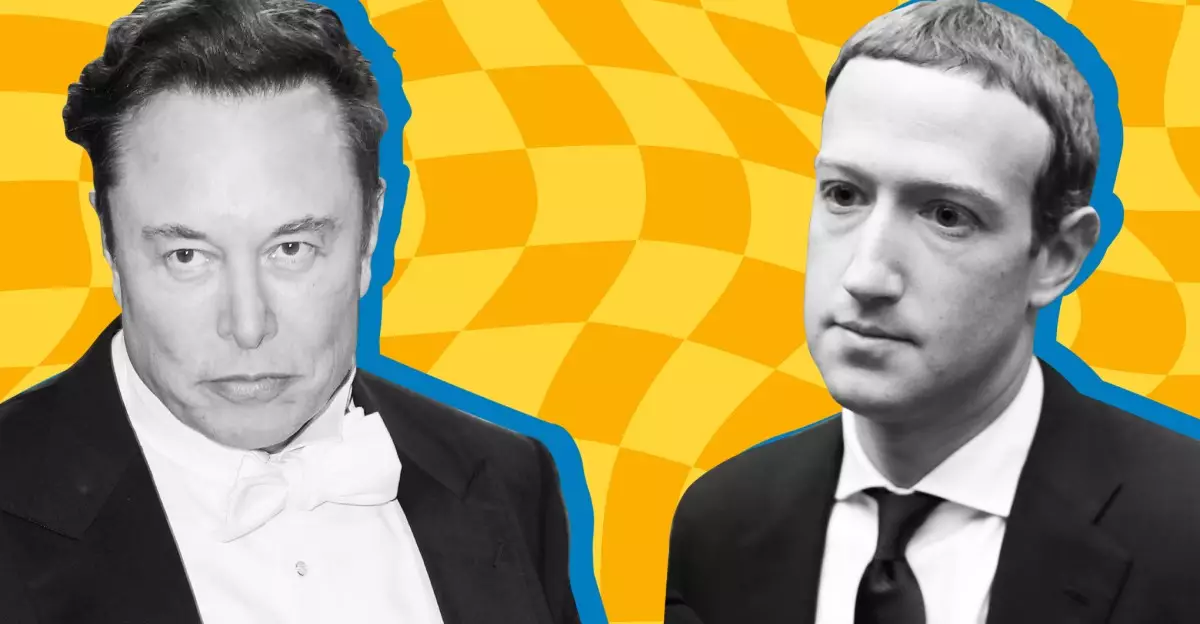In a bizarre twist of modern technology merging with social satire, a recent incident in California has seen the crosswalks of several cities becoming the stage for an unexpected performance. Hackers have ingeniously manipulated the voice features of pedestrian signals to deliver parodic messages in the voices of tech moguls Elon Musk and Mark Zuckerberg. This venture not only raises eyebrows but also sparks discussions on the implications and ethical considerations surrounding AI technology. The fortuitous melding of AI and humor challenges our perceptions of these influential figures while turning mundane crosswalks into platforms of public commentary.
The hijinks were reported across at least three Californian locales, with notable activity in Palo Alto, Redwood City, and Menlo Park. Videos circulating on social media reveal Musk’s AI-impersonated voice engaging passersby with cringe-inducing catchphrases, pleading for companionship, and reflecting a surprisingly poignant sense of loneliness. Conversely, Zuckerberg’s doppelgänger offers a satirical take on the darker implications of social media, underscoring his controversial reputation. This form of street theater cleverly utilizes technology to critique not just the individuals impersonated, but also the systems they represent.
A Playful Critique of Industry Giants
The content generated by these AI voices dives into a rich pool of sarcasm, mocking the very personas of Musk and Zuckerberg. For instance, the Musk imitation humorously muses about social isolation and consumerism: “You know, they say money can’t buy happiness… but it can buy a Cybertruck.” Such statements resonate with audiences who are familiar with Musk’s public persona—a blend of ambitious innovation and vulnerability. In this context, the hijacked messages serve as astute commentary on the cult of celebrity surrounding tech leaders.
Similarly, Zuckerberg’s AI voice gleefully acknowledges Facebook’s less than stellar contributions to societal discourse, quipping about undermining democracy and sensationalizing user data. This self-aware mockery allows listeners to consider the ramifications of technology on society while engaging in satire busy with irony. The playfulness of the hacking incident invites individuals to reflect on our reliance on technology while laughing at the absurdities perpetuated by those in power.
The Implications of AI Cloning
While this incident leans heavily into humor, it is also crucial to recognize the underlying implications that AI-generated voices pose. The rapid development of AI technology has opened floodgates of creative possibilities; however, it also raises critical ethical questions about consent, identity, and manipulation. In a world where the lines between reality and simulation blur, events like these serve as reminders of both the power and the pitfalls of AI.
This crosswalk prank may seem innocuous, but consider how easily such technology could be weaponized. AI-generated voices have the potential to impersonate individuals with chilling accuracy, blurring the lines of trust and authenticity in communication. As we revel in the humor of these occurrences, it’s imperative not to lose sight of the seriousness of the implications surrounding voice cloning technology, particularly as it relates to misinformation and digital trust.
Civic Responses and Community Reflections
Local authorities have swiftly responded to the unexpected change in their city’s soundscape, with city officials confirming that they were disabling the voice features until further notice. This reaction not only reflects a commitment to maintaining safe public spaces but also indicates an acknowledgment of the strange intersection between public communication and modern technology.
The community’s reaction has been mixed, with some delighting in the prank as a display of creativity and a subversion of authority. Others express concern over the potential for misuse, highlighting a societal rift on the reception of technology as both a tool for empowerment and a source of uncertainty. In a time when civic engagement often feels like a passive process, this incident inspires dialogue amongst community members regarding their relationship with the tech industry and the ways in which those companies continue to impact their lives.
As videos of the impersonated voices circulate online, there exists an inherent irony: a satirical commentary on figures known for their manipulation of platforms now finding themselves on the receiving end of relentless humor. This serves not only to entertain but also to provoke thought about the role of technology in shaping conversations around power, identity, and the way forward in an increasingly digitized world.

